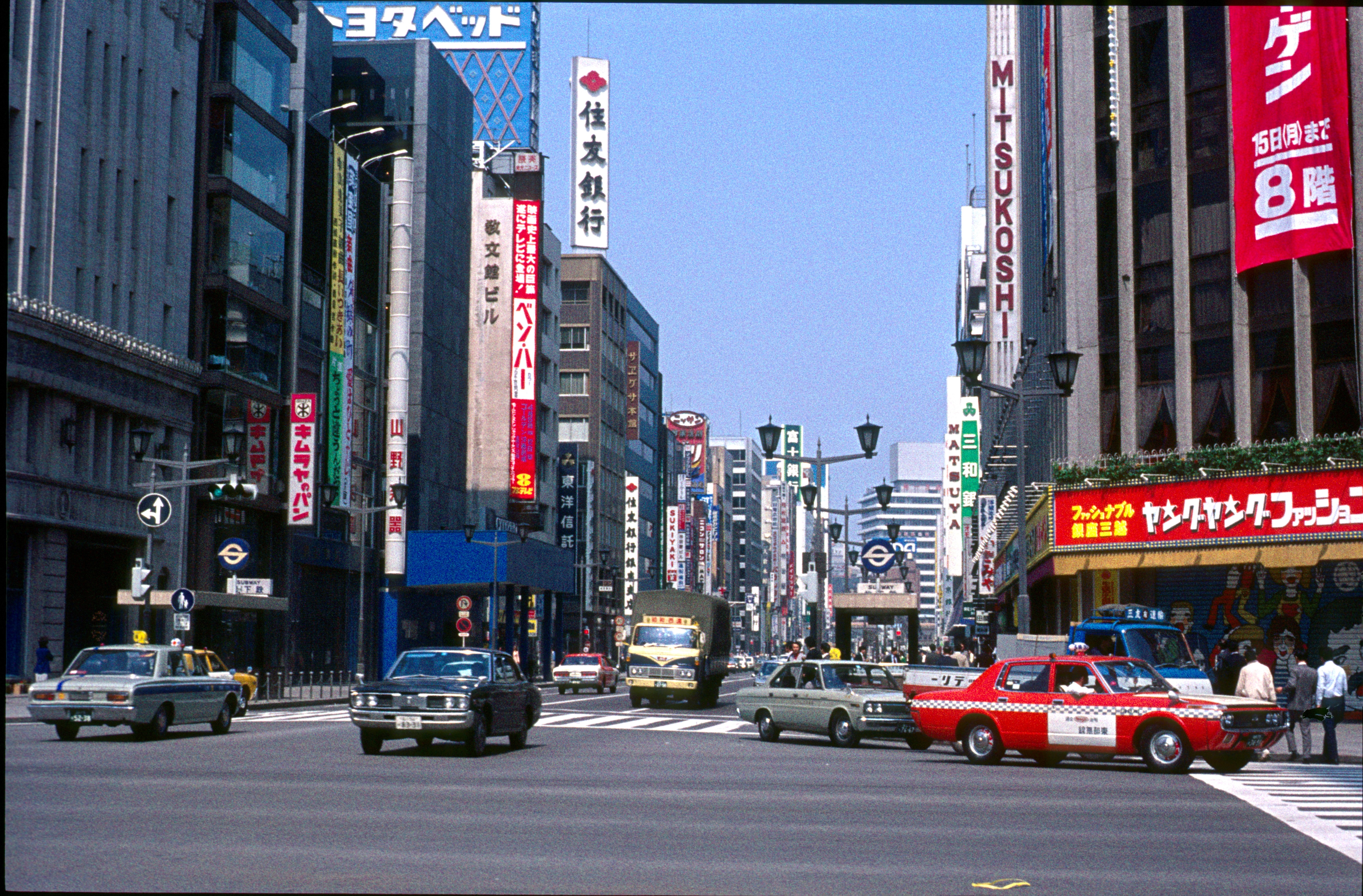
Forty-five years ago, the Ontario Educational Communications Authority (aka "TVOntario," similar to a regional version of PBS affiliates) sent researcher Barbara Morris to Japan to check out the country's advanced technology for a new series called "Fast Forward" (which was eventually carried by PBS).
Giant flat-screen displays... the internet... immersive AV experiences... all of those were a pipe dream in 1978. But the following article from Ms. Morris for TVOntario's Travel Section gives us a good perspective on not only a westerner's view of Japan's rapid post-war transition into a booming consumer economy, it also provided a preview of the impact the country has had on technology over the past four and half decades:
"In my opinion, sending me to Japan was one of the best decisions you've ever made. By the way, did I tell you I really don't speak Japanese? Anyway, you know it had to be done. How could we have done a show like Fast Forward without looking at Japan? Ridiculous!
But I guess you'd like to know what I did there for three weeks when I wasn't visiting shrines or drinking saki. Well, don't worry, I think I got some great stuff. They've got systems in operation for the public we haven't even dreamed of yet.
I know I'm going to get carried away and ramble off a bunch of items without giving any details, but I just wanted you to get an idea of all the great stuff I found (before we go over my expenses!).
I saw at least three different kinds of flat-panel TVs that are small enough to hang on the wall."
Well, the first day, on the way to the Foreign Press Centre, I heard this electronic music blaring from a speaker on a street corner. I couldn't believe it, but apparently they've been installed for the blind so they can tell when it's safe to cross the street.
We talk about their traffic problems, but, believe me, they're very aware of them. For the past few years they've been testing an incredible traffic control system. I saw it from the back seat of a limo, and it really seems to work. There's a display monitor in every car that is continually updated with information from roadside computers at major intersections. The display shows you which way to turn at the next corner. So, by juggling info about the changing traffic conditions, the computers are able to direct your car along the least congested route to where you want to go.
You were looking for fiber-optics technology? Well, Japan has a whole fiber-optics city, called HI-OVIS. They're experimenting with different applications of the fibers and developing a good interactive communications system. I mean this one's really interactive. They've got more than a terminal to dial up information; they also have a television camera and a microphone in every home. They interact with the local station all the time, and it looks like they're having a lot of fun.
They're working on teleconferencing systems, too. There's a color link between a hotel in Tokyo and a hotel in Osaka for companies to use for business meetings. And, get this, if you're stuck on the bullet train while your meeting's going on, you can join right in by using thee train's public telephone.
One day as I passed a television store (something that's more common in Japan than a Mac's Milk here), I noticed all the televisions tuned to the same channel but half of them had English coming out, and the other half were in Japanese. As of October 1st, two networks have been broadcasting regular multiplex signals, and, of course, all the major manufacturers already have their own converters. One company has suggested a three-channel system, the third being for a hard copy. They have another facsimile system that can reproduce a page from another country in 20 seconds or less.
Oh, and being a teacher at heart, you'll like this one. There's a still-picture broadcasting system that has the capability of reproducing 50 different still-picture programs simultaneously. No kidding!
Jim, you wouldn't believe what the companies are into. I saw at least three different kinds of flat-panel TVs that are small enough to hang on the wall, speech and picture recognition systems—including advanced speech synthesis machines—high-definition video screens with 1,125 lines—beautiful—and home computers that look like they can do just about anything. By the way, one of the high-resolution television I saw had a pan knob. I'm not sure why it's there, but it did unusual things to the picture information. Next time you're in Japan, you'll have to see it!
Honestly, Jim, I think you sent the right person, and, if you insist, I'll go back for you anytime. I fit in well there. I guess you've noticed I'm a little clumsy. Well, Japan was ready for me. All the doors open automatically, so I could walk around in my usual dazzled stupor forever and never bump into anything. Even the taxi doors are automatic.
We're really going to impress them with with stuff—that is, if I can find my detailed notes somewhere! Oh, and one last thing: I think it's a smart idea to send me back for a few months. I'm sure I've missed a couple of things. But, first, I guess, we'd better discuss my expenses!"
Reprinted by permission from the author.
The professional video industry's #1 source for news, trends and product and tech information. Sign up below.
